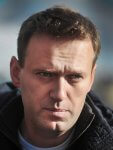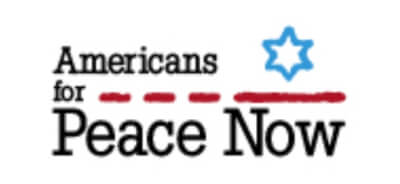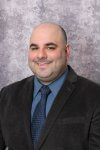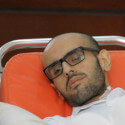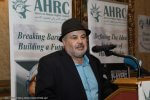Russia: UN experts say Navalny poisoning sends clear, sinister warning to critics
Two UN human rights experts today said an international investigation into the sinister poisoning of Alexei Navalny must remain a priority, stressing the urgent need to find the truth about what happened to the Russian opposition leader and to ensure accountability of those responsible.
“We believe that poisoning Mr. Navalny with Novichok might have been deliberately carried out to send a clear, sinister warning that this would be the fate of anyone who would criticise and oppose the Government. Novichok was precisely chosen to cause fear,” said Agnès Callamard, the Special Rapporteur on extrajudicial, summary or arbitrary executions and Irene Khan, the Special Rapporteur on the promotion and protection of the right to freedom of opinion and expression.
The two UN experts published an official letter sent to the Russian authorities in December 2020 which followed their four-month investigation into Navalny’s poisoning in August 2020. The letter was made public after the expiry of a 60-day confidentiality clause. The Government has yet to respond.
The Special Rapporteurs recalled that toxicology tests conducted in Germany, France, Sweden and by the Organisation for the Prohibition of Chemical Weapons (OPCW) found that Mr. Navalny was poisoned with a novel form of the Novichok nerve agent of the type that was developed initially by the Soviet Union and then by Russia.
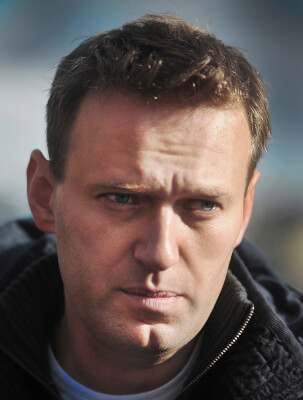
“The availability of Novichok and the expertise required in handling it and in developing a novel form such as that found in Mr. Navalny’s samples, could only be found within and amongst State actors,” the UN experts said.
In their letter to the authorities, the experts detail the evidence pointing to the very likely involvement of Government officials in the poisoning, presumably at high level.
“Mr. Navalny was under intensive Government surveillance at the time of the attempted killing, making it unlikely that any third party could have administered such a banned chemical without the knowledge of the Russian authorities,” the letter said.
“The use of Novichok violates Russia’s commitments under the Chemical Weapons Convention. It was meant to kill Mr. Navalny and as such constitutes a violation of the prohibition against arbitrary killings. Due to the physical pain and suffering inflicted on the victim, it may well amount to a form of torture or other cruel, inhuman or degrading treatment or punishment.”
The experts found that the attack against Mr. Navalny falls within a wider trend, observed over several decades, of arbitrary killings and attempted killings of Russian citizens and Government’s critics, both within Russia and extraterritorially. “This pattern requires an emphatic and persistent response by the international community to protect the fundamental rights to life and freedom of expression at the foundation of international human rights,” the experts said.
“The Government cannot escape its obligations under international human rights law by denying responsibility for the act itself. Even in the unlikely event that a third party could somehow have committed this act, Russia would have failed in its obligation to protect the life of Mr. Navalny against such non-State actors.
“As a prominent Government critic and anti-corruption voice, Mr. Navalny had been the target of numerous physical attacks during the past years, including at least two other poisoning attempts.
“Thus far, the Government has not put forward any evidence that an adequate assessment of the threats faced by Mr. Navalny was made and that, as a result of it, the competent authorities provided him with the necessary protection to prevent or minimise risks to his safety.
“Failure to have done so could engage the State’s responsibility for violation of Mr. Navalny’s right to life by virtue of a lack of due diligence on the part of the authorities,” the experts warned.
“Since August 2020, we have called on the Government to ensure that a credible, transparent investigation, respecting international standards, would be conducted promptly and to make the findings public. Their response to date falls short. Some Government officials even publicly dismissed what happened to Mr. Navalny as a staged performance orchestrated against the country.
“In situations potentially engaging the responsibility of the State, the authorities have a duty to act with exemplary diligence. Simply denying responsibility, while failing to engage in an effective investigation, may constitute in itself a violation of the right to life. Shedding light on the circumstances of Mr. Navalny’s poisoning is also part of the State’s obligation to protect freedom of expression.
“We deplore that in stark contrast to the Government’s lack of meaningful initiative to investigate Mr. Navalny’s poisoning, the authorities acted with firm and focused determination to ensure he was arrested as immediately as he returned to Russia after he had been several months in Germany to only recover his health.
“Given the inadequate response of the domestic authorities, the use of prohibited chemical weapons, and the apparent pattern of attempted targeted killings, we believe that an international investigation should be carried out as a matter of urgency in order to establish the facts and clarify all the circumstances concerning Mr. Navalny’s poisoning. This investigation is especially critical now that Mr. Navalny is being detained by the Russian Government and is subject to its control. We call on the Russian Government to request or to allow an investigation of this nature.
We also remind the Russian Government that it is responsible for the care and protection of Mr. Navalny in prison and that it shall be held responsible for any harm that may befall him. We call for Mr. Navalny’s immediate release.”
The UN Special Rapporteurs have previously raised their concerns with the Government of the Russian Federation and will continue to monitor the situation closely.
BACKGROUND
An unofficial translation in Russian of the Experts’ letter is available here.
The experts: Ms. Agnès Callamard, Special Rapporteur on extrajudicial, summary or arbitrary executions and Ms. Irene Khan, Special Rapporteur on the right to freedom of opinion and expression.
Special Rapporteurs are part of what is known as the Special Procedures of the Human Rights Council. Special Procedures, the largest body of independent experts in the UN Human Rights system, is the general name of the Council’s independent fact-finding and monitoring mechanisms that address either specific country situations or thematic issues in all parts of the world. Special Procedures’ experts work on a voluntary basis; they are not UN staff and do not receive a salary for their work. They are independent from any government or organization and serve in their individual capacity.
UN Human Rights, Country Page – Russian Federation


- Israelisnipers shooting and killing hospital workers in Gaza - December 11, 2023
- CAIR Condemns Israeli Executions of Wounded, Unarmed Palestinian in West Bank - December 11, 2023
- Arab and Muslim American voters face a “simple choice” between Biden’s inhumanity and Trump’s edgy politics - December 9, 2023













